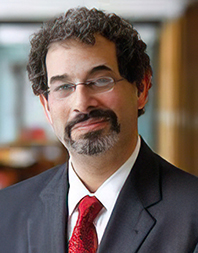New precision health center and academic degrees specific to precision medicine may indicate acceleration in precision medicine research
University of California Irvine (UCI) has announced the launch of the Institute for Precision Health (IPH), a new initiative that leverages the strengths of many various university programs to advance personalized medicine.
This announcement is part of a broader trend of increased emphasis on precision medicine by influential academic institutions. Academic institutions such as UCI often lead the way in new scientific developments. Healthcare leaders will want to follow the increased attention these university research teams bring to precision medicine.
The IPH will be a multifaceted institute that draws on UCI’s resources in:
- health sciences,
- artificial intelligence,
- engineering,
- machine learning, and
- clinical genomics to advance precision medicine research.
According to an Institute of Precision Medicine FAQ, while the plan to establish a precision medicine initiative had been in the works for some time, this undertaking was catalyzed by the demands of the COVID-19 pandemic.

“We couldn’t have had a ‘proof of concept’ with higher stakes than the pandemic,” said IPH co-director Tom Andriola, in the press release. Andriola is also UCI’s Vice Chancellor for Information, Technology and Data. “We saw in real time how mobilizing our capabilities to analyze health data and make customized decisions could complement leading-edge clinical treatments to save lives and reduce hospital stays.”
“The ever-evolving capabilities of the IPH herald a future of personally tailored care that fundamentally alters the healthcare landscape to place the patient at the center and in control,” noted Steve A.N. Goldstein, MD, PhD, Vice Chancellor for Health Affairs at the University of California Irvine.
“In the past, individuals were treated based on approaches thought to be best for groups of patients,” he added. “Now we begin the IPH epoch of patient-centric care designed to continuously improve the health of the individual within their community, even as new knowledge accrues, whereby rights, incentives, transparency, and control remain the purview of the patient.”
Goldstein views this step as not just a possible method of improving UCI’s ability to enhance patient care, but as an essential part of advancing healthcare. “This is the giant leap for healthcare,” he explained. “It’s glaringly clear that precision health is how to increase the quality of care, to decrease the cost of care—by both improving how it’s delivered and matching cost to value—and to deliver quality healthcare to the underserved.”
Accelerating the Development of Precision Medicine
According to the UCI press release, the scope of the IPH is intended to encompass seven distinct areas:
- Statistics, machine learning, artificial intelligence (SMART)
- Applied artificial intelligence research (A2IR)
- Advanced analytics and artificial intelligence (A3)
- Precision omics
- Collaboration for health and wellness
- Deployable health equity
- Education and training
This new undertaking is expected to accelerate the development of precision medicine research and treatments.
“For many diseases—especially neurodegenerative ones like Alzheimer’s, Parkinson’s and even Huntington’s, where the causal gene is known—there are simply no treatments available that change their course,” said IPH co-director Leslie Thompson, PhD.
“We’re excited because we know that with precision health, we have the potential to define diseases better, understand them better and treat them far better. We expect major breakthroughs,” she added. Thompson is Donald Bren and Chancellor’s Professor, Psychiatry and Human Behavior, at UCI’s School of Medicine.
New Leaders in the Field of Precision Medicine
While the newly announced IPH at University of California Irvine is a clear signal of increased focus by academia on precision medicine, this is only part of a broader trend. The University of Chicago recently announced it has begun offering a Master of Science in Precision Health (MsPH). This new degree will focus on precision medicine technologies and research methodologies, providing precision medicine-specific education that they hope will result in a new generation of leaders in this emerging field.
These recent moves by leading academic centers will be of particular interest to healthcare leaders closely monitoring the future of precision medicine in healthcare. Like most technological advances, increased academic focus will significantly accelerate the growth of this newer field of medicine, which will in turn affect what personalized treatment options healthcare systems can offer to their patients.
—Caleb Williams
Related Information:
UCI Institute for Precision Health FAQ
UCI Announces Launch of Institute for Precision Health
University Of California, Irvine Launches Institute for Precision Health
UC-Irvine Institute for Precision Health Called an ‘Ecosystem for Collaboration’
U Of California-Irvine Opens AI-Powered Institute for Precision Health
University of Chicago to Launch New Master of Science in Precision Health
